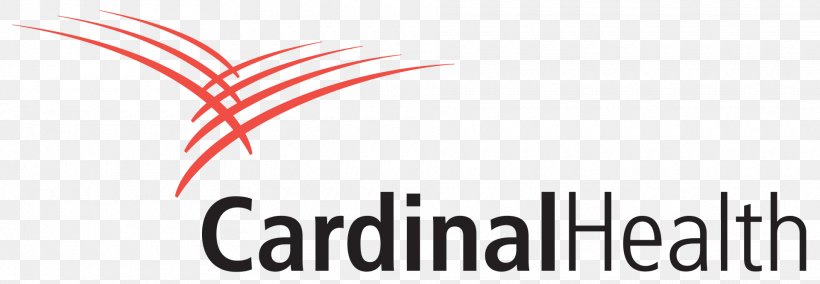This article is proudly sponsored by Sew Torn, a film by Diamantis Zavitsanos!
YUM & CAH: Inflation’s Worst Enemies (And Your Portfolio’s Best Friends)
Because burritos and Band-Aids don’t care about CPI prints.
You’ve heard the market say “Inflation is sticky.”
Fine. So let’s stick it right back—by owning companies that literally profit when prices go up.
Enter:
YUM Brands (YUM) – the fast-food empire your stomach (sadly) loves and your wallet should love more.
Cardinal Health (CAH) – the quiet healthcare middleman making bank while no one’s looking.
They’re in totally different industries, but they share one superpower: Inflation resilience that actually works.
Let’s break it down — MacroHint style.
YUM Brands: Your Portfolio’s Greasy Hedge
You know YUM even if you don’t know you know YUM. It owns:
- Taco Bell (inflation-proof cravings)
- KFC (chicken so good it transcends rate cycles)
- Pizza Hut (still riding the “kids eat free” momentum since 1998)
What Makes YUM Inflation-Proof?
- Franchise Model = Asset Light. YUM doesn’t own most of its restaurants. Franchisees do. So when prices rise, YUM still gets its juicy royalties — no matter what chicken or cheese costs.
- Global Diversification. The U.S. gets expensive? Cool. There are 150+ other countries where YUM is still winning hearts and wallets.
- Pricing Power With a Smile. Taco Bell just renamed $3 items “Cravings Value Menu.” That’s not deception — that’s inflation judo.
- Delivery & Loyalty Apps. That burrito now costs $2 more and you tipped the driver and you earned 12 fire sauce points. Guess who wins? (Hint: Not you.)
YUM’s Bottom Line Stays Hot:
| Metric | Value (2024) |
| Revenue | $7.2B |
| EBITDA Margin | ~35% (!!!) |
| Dividend Yield | ~2.2% and growing |
| Same-Store Sales | +6% globally |
Translation: YUM eats inflation for breakfast. Then sells it back to you in a Crunchwrap
Cardinal Health (CAH): The Healthcare Middleman With the Tightest Margins — and the Loosest Grip on Inflation
CAH is boring — and that’s the point. It distributes meds, gloves, surgical kits, PPE, and every other thing that hospitals need every day regardless of rates, wars, or whatever Powell said this week.

What Makes CAH a Winner in Inflationary Times?
- Volume Over Margin. CAH isn’t trying to mark things up like a used car lot. They win on volume. And guess what inflation does? It boosts nominal volumes.
- Supply Chain Dominance. CAH touches 90%+ of U.S. hospitals. When prices go up, they’re still the ones delivering the goods. That gives them negotiating power and cost passthrough strength.
- Resilient Cash Flow. Needles and gauze don’t go on sale when inflation rises. Healthcare is essential. And CAH is at the center of it — without the biotech risk or FDA drama.
CAH’s Silent Strength:
| Metric | Value (2024) |
| Revenue | $162B+ |
| Net Income | $1.6B+ |
| Dividend | ~2% (low payout ratio = safety) |
| Free Cash Flow | Strong and consistent |
Translation: CAH isn’t sexy. But neither is inflation. This is the kind of stock your grandpa would buy — and then quietly beat your entire tech portfolio with.
Why They Both Work in 2025 (and Beyond)
| Category | YUM | CAH |
| Industry | Fast Food Royalty | Healthcare Distribution King |
| Inflation Armor | Franchise model, brand loyalty | Volume scaling, contract pricing |
| Rate Cut Boost? | Yes — lowers franchisee cost of capital | Yes — cheaper warehouse & logistics financing |
| Boring = Beautiful | Sort of | Absolutely |
| Dividend? | Growing and juicy | Reliable and conservative |
Final Word: Why YUM & CAH Are the Real Inflation Kings
- People don’t skip Taco Bell during inflation. They double down.
- Hospitals don’t stop ordering scalpels when CPI hits 4.1%.
- These two companies are masters of margin control, cash flow stability, and passing the pain along — while protecting their own bottom lines.
Inflation hurts portfolios that aren’t prepared.
YUM and CAH? They’ve been preparing since before Powell grew facial hair.
DISCLAIMER: This analysis of the aforementioned stock security is in no way to be construed, understood, or seen as formal, professional, or any other form of investment advice. We are simply expressing our opinions regarding a publicly traded entity.
© 2025 MacroHint.com. All rights reserved